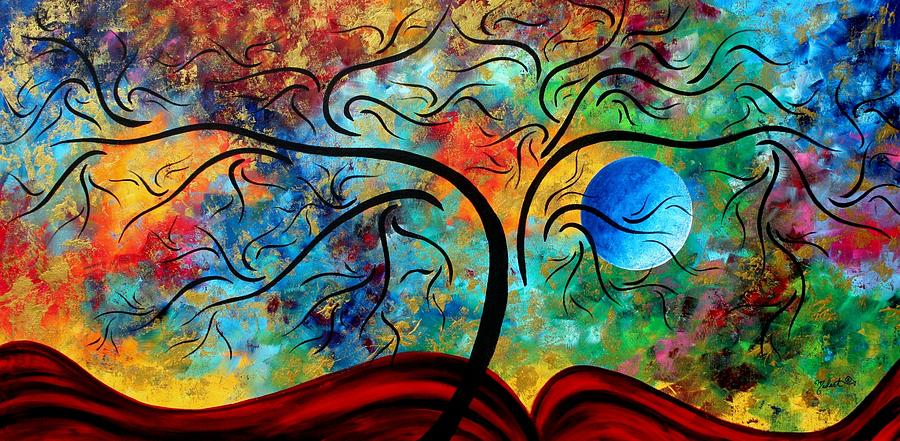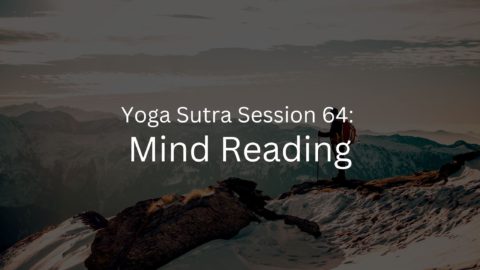Pratibha is a synthesis and a transcendence.
If you are too intellectual, you will miss a few things in life which are very beautiful. You will not be able to enjoy poetry, you will not be able to delight in singing, you will not be able to celebrate in dancing. They will look a little foolish, a little below you. You will be uptight, you will hold yourself back, you will remain a little repressed. Your moon will suffer.
If you are just intuitive, you may be able to enjoy much, but you will not be able to help others much because the communication will be lacking. You may be able to live a beautiful life yourself, but you will not be able to create a beautiful world around you because that is possible only through intellect.
When science and poetry meet, then a perfect world is possible. Otherwise, intellect goes on condemning intuition; intuition goes on condemning intellect.
I have heard:
A woman asked a new acquaintance, “How long have you been married?”
“Twenty odd years,” replied the other.
“Why do you call them odd?”
“Wait,” said the woman, “until you see my husband.”
The intuition thinks the intellect is odd; the intellect thinks the intuition is odd. Separately they are odd. Together they create a great orchestra, a great harmony.
The great Persian mystic Rumi in a beautiful poem tells us of how one day Moses, the prophet, sees a shepherd on the way, crying, “O Lord, where art thou? I long to serve thee and comb thy hair and wash thy clothes and kill thy lice and bring milk to thee and kiss thy little hand and rub thy little feet and sweep thy little room at night before thou dost retire.”
Moses, the prophet, hearing these words is greatly annoyed and quickly he speaks rough words to the shepherd, “O foolish man! To whom are you speaking these foolish words? What blasphemy are you uttering? Better that you were stricken dumb than that you should speak thus to God the Most High. These words are a crime. A shepherd! Put cotton into your mouth and speak no longer a word of irreverence to the Lord who in a moment can consume thee to ashes and dust.” And the shepherd, we are told, rends his garment in agony and heaves a sigh and goes quickly forth into the wilderness.
Then unto Moses comes a revelation at night. To Moses speaks the Lord, “Moses, thou wert sent into the world to unite, not to sever. But you have parted from me, my servant, my devotee. Dear to me is that shepherd. Forget not, Moses, that every mode of worship is mine. The modes are many, religions are many, yet all are mine. Each one has his own path, his own way, his own form, his own idiom. Moses, I look not at tongues and words: I look at the spirit and the inward feeling.” And Moses goes out to meet the shepherd and says to him, “I repent. And I ask thee to forgive me.” The intellect always goes on thinking in its own idiom. The intuition remains incomprehensible to it.
And intuition cannot believe in intellect; it seems too superficial, with no depth.
You have to come to a synthesis within you. That’s what Patanjali means when he says, “PRATIBHA VA SARVAM.” You have to come to such a deep synthesis that pratibha arises in you – which is one where logic and prayer meet, where work and worship meet, where science is not antagonistic to poetry and poetry is not antagonistic to science.
That’s why I say man is yet in the making, he is evolving. Man is yet a form without content. The content has to be achieved; that great alchemy has to be achieved. You have to make yourself a great experimental lab of evolution and you have to bring your energy from the muladhar, from the sex center, upwards to the sahasrar.
Hridaye chitta samvit.
PERFORMING SAMYAMA ON THE HEART BRINGS AWARENESS OF THE NATURE OF MIND.
That too is not an adequate translation, but it is difficult. Translators are in difficulty.
“HRIDAYE CHITTA SAMVIT.” First, when Patanjali uses the word hridaye, he does not mean the physical heart. In yoga terminology, just behind the physical heart is the real heart, hidden. It is not part of the physical body. The physical heart simply corresponds with the real heart, the spiritual heart. There is a synchronicity between them, but no causal relationship. And that heart can be known only when you have reached the peak. When your energy has come to the omega point of sahasrara, only then can you realize the real heart, the very abode of God.
“HRIDAYE CHITTA SAMVIT” – “Performing samyama on the heart brings awareness of the nature of mind.” That too is not true. Chitta samvit means the very nature of consciousness, not of mind. Mind is gone, left behind, because mind is either sun mind or moon mind. Once you have transcended sun and moon, mind is gone, left behind. In fact chitta samvit is a state of no mind. If you ask Zen people they will say no-mind. The mind is gone because it exists with the division; when the division is gone, mind is gone. They are together, two aspects of one phenomenon. The mind divides and the mind exists through division – they depend on each other, they are interdependent. When division is gone, the mind is gone; when the mind is gone division is gone.
There are two ways to reach this state of no-mind. One is the tantra way: you drop the mind; division disappears. The other is the yoga way: you drop the division; the mind disappears. You can do either. The ultimate result is the same – you become one, a unison arises.
“HRIDAYE CHITTA SAMVIT.” Then you come to know what is the real nature of consciousness.
Again, this word “consciousness” in English denotes it as if it is an antonym to “unconsciousness.” Chitta samvit is not an antonym to unconsciousness. Consciousness includes all: unconsciousness is also a sleeping state of consciousness, so there is no antagonism. Consciousness, unconsciousness, all – the very nature of consciousness – is revealed when one brings one’s awareness, samyama, to the heart.
In yoga the heart center is called anahata chakra, anahata center. You must have heard of the famous Zen koan…. When a disciple reaches to the Master, the Master gives something absolutely absurd to meditate upon. One of the famous absurdities is, the Master says to the disciple, “Go, and listen to the sound of one hand clapping.” Now this is absurd. The one hand cannot clap, and there cannot be a sound of one hand clapping. For the sound two hands are needed to clap and create it.
Aahat means by conflict; anahat means without any conflict. Anahat means: the sound of one hand clapping.
When all sounds disappear in you, you hear the sound which is constantly there, which is intrinsic to nature, which is the very nature of existence – the sound of silence, or the sound of soundlessness.
The heart is called anahata chakra, the place where constantly a sound is being created – without any conflict – an eternal sound. Hindus have called that sound aumkar – aum. It has to be heard.
So people who go on repeating, “Aum, aum, aum…” are doing a foolish thing. By your repetition you cannot come to the real aumkar, to the real sound, because you are making it you are creating it by clapping.
Become completely silent, drop all thinking, become unmoving, and suddenly it is there – it has always been there, but you were not available to listen to it. It is a very, very subtle sound. When you have dropped the whole world from your mind and you are alert only for it, then by and by you become receptive to it – by and by you start hearing it.
Once you can hear the sound of one hand clapping, you have heard God, you have heard all.
Patanjali is taking you step by step towards the omega point. These three sutras are very significant.
Ponder over them again and again, meditate on them. And try to feel them within your being. They can become keys which can open the doors of the divine.
Tags: Patanjali Yoga Sutra 38 The Spiritual Heart










